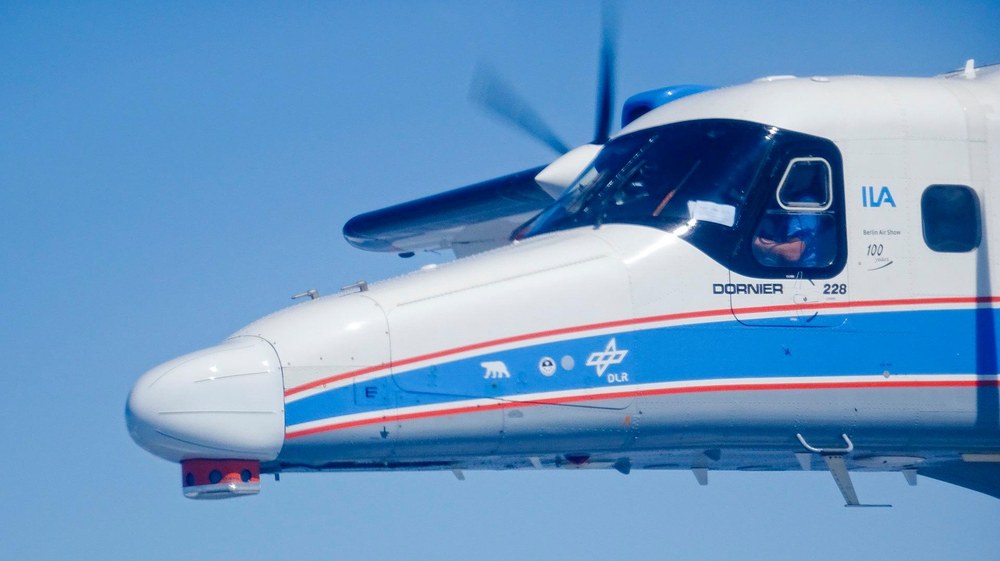Dornier DO 228-101 (D-CODE)



The Dornier DO 228-101 (D-CODE), operated by the German Aerospace Center (Deutsches Zentrum für Luft- und Raumfahrt; DLR) Research Flight Department in Braunschweig, serves as a carrier system for flight tests and experiments for DLR institutes and numerous external customers. The aircraft is used, for example, to perform flow investigations on wings, test optical sensors used to generate simulated external views, as well as to validate flight guidance technologies and fly remote sensing systems. The aircraft can be remotely piloted using an experimental, digital autopilot and a data link.
Unrestricted view of Earth
This research aircraft is unique in the multitude of experimental possibilities it offers to users. Unlike conventional aircraft, it is possible to attach external equipment – such as sensors or probes – to hard-points on the fuselage and wings of the DO 228-101.
Two camera ports installed in the cabin floor allow the use of camera systems with an unrestricted view of Earth's surface. Computers for conducting experiments can be accommodated in specially manufactured racks fitted in the rectangular fuselage; the onboard electrical system supplies the necessary power. A variety of data are recorded in-flight by a measurement system and are immediately available for experimental purposes.
The aircraft's experimental autopilot system will be of particular benefit to future projects, such as those testing uncrewed flight systems or novel approach procedures. Flight routes or manoeuvres can therefore be directly controlled by the person performing the experiment, using the aircraft's autopilot. It is also possible to control the aircraft from a ground station via a data link.
The DO 228-101 has been supporting DLR's research flight operations for over 30 years and has proven to be robust and reliable. Its equipment has been constantly modernised and developed over the years, allowing the aircraft to address a wide range of future applications.
